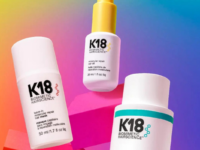Earlier this month, the University of California, Berkeley published its findings after testing mainstream tampon brands for toxic metals – the results were alarming. According to UC Berkeley’s research, toxic metals including lead, nickel, mercury and arsenic are present in popular tampon products. However, for sustainable menstrual product brands like Hello Period, the most shocking part of UC Berkeley’s study was that it is the first of its kind to measure the presence of metals in
Unlock indepth features,executive
interviews and quarterly magazines
Earlier this month, the University of California, Berkeley published its findings after testing mainstream tampon brands for toxic metals – the results were alarming.According to UC Berkeley’s research, toxic metals including lead, nickel, mercury and arsenic are present in popular tampon products.However, for sustainable menstrual product brands like Hello Period, the most shocking part of UC Berkeley’s study was that it is the first of its kind to measure the presence of metals in tampons specifically.“When you think about how long tampons have been on the planet and in circulation and used by women around the world, the fact that this is the first study where they’ve tested for metals is kind of unbelievable,” Hello Period’s chief operating officer, Kat Sprowell, told Inside Retail.While it remains unknown if the metals detected in the samples are linked to adverse health effects, consumers have created a viral moment for tampon alternatives – sending sustainable menstruation brands viral.An industry-wide problemThe study did not name any of the companies it tested but it did disclose that it examined 30 tampons from across 30 brands – with the motivation to uncover a potential public health concern.“I really hope that manufacturers are required to test their products for metals, especially for toxic metals,” lead author Jenni Shearston, postdoctoral scholar at the UC Berkeley School of Public Health, said in a statement.She added that “it would be exciting to see the public call for this, or to ask for better labelling on tampons and other menstrual products”.While there is a public outcry for more research and potential regulations, brands like Hello Period have seen their sales skyrocket.Hello Period shared that its Google searches are up by 660 per cent, online store sessions are up by 64 per cent and online sales are up 160 per cent compared to the same period last month.“It absolutely feels like we are at a tipping point, even just in the last 10 days or so since the research was released publicly,” shared Sprowell.“It feels like there’s been a sort of seismic shift in terms of people asking questions and wanting to have the information and be making more informed decisions,” she added.Despite public perception due to effective marketing, the study revealed that organic tampons were not free from toxins either. The study found that lead concentrations were higher in non-organic tampons while arsenic was higher in organic tampons, but no category had consistently lower concentrations of all or most metals.Sprowell noted the lack of transparency by many period care brands that consumers interact with regularly on pharmacy and supermarket shelves.“I think there’s probably been a lot of trust in the past, [consumers have] largely taken things on face value and there probably has not been as much awareness around what’s in the products. There certainly isn’t the level of transparency that there should be,” explained Sprowell.Period care for good Hello Period is nearly halfway to its 2030 goal of diverting 1 billion single-use period products away from landfill and waterways.“In really simple terms, our mission is to make periods better for people and the planet,” shared Sprowell.“It’s really been about making these options really accessible for people and catering to different needs in terms of, some people like external products, some people want internal products – everybody is slightly different in terms of what they need,” she elaborated.Hello Period’s inclusive approach to period care products has guided its innovation in the space – offering a full range of reusable cups, discs, pads and underwear.Despite its environmental goal, the health and well-being benefits of reusable period care products are a pillar for Hello Period.“It’s always been a pretty important part of our story, down to the detail that we provide around the medical-grade materials that we use and making sure that people feel really confident about all of the products,” explained Sprowell.“But especially the internal products – you know, you need to know what you’re putting in your body.”Due to the intimate nature of period products, Hello Period has found the most effective marketing strategy as a grassroots business is word of mouth and personal recommendations.“It’s been about building up a community and building up trust with our customers,” Sprowell concluded.“Word of mouth for us is huge, and I think the word of mouth has helped to educate people more curious about the products that are available.”














